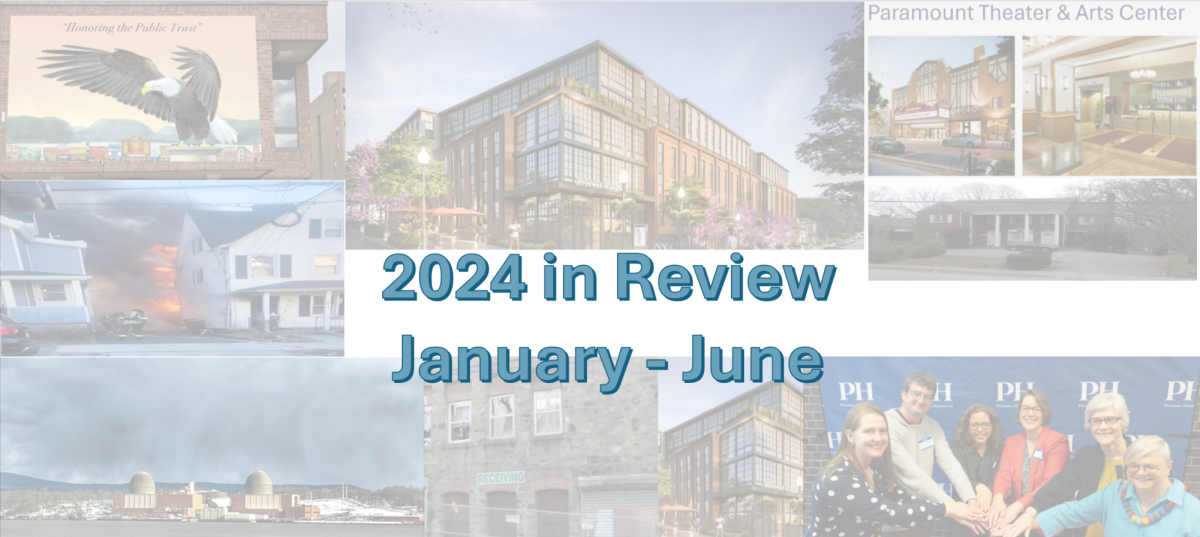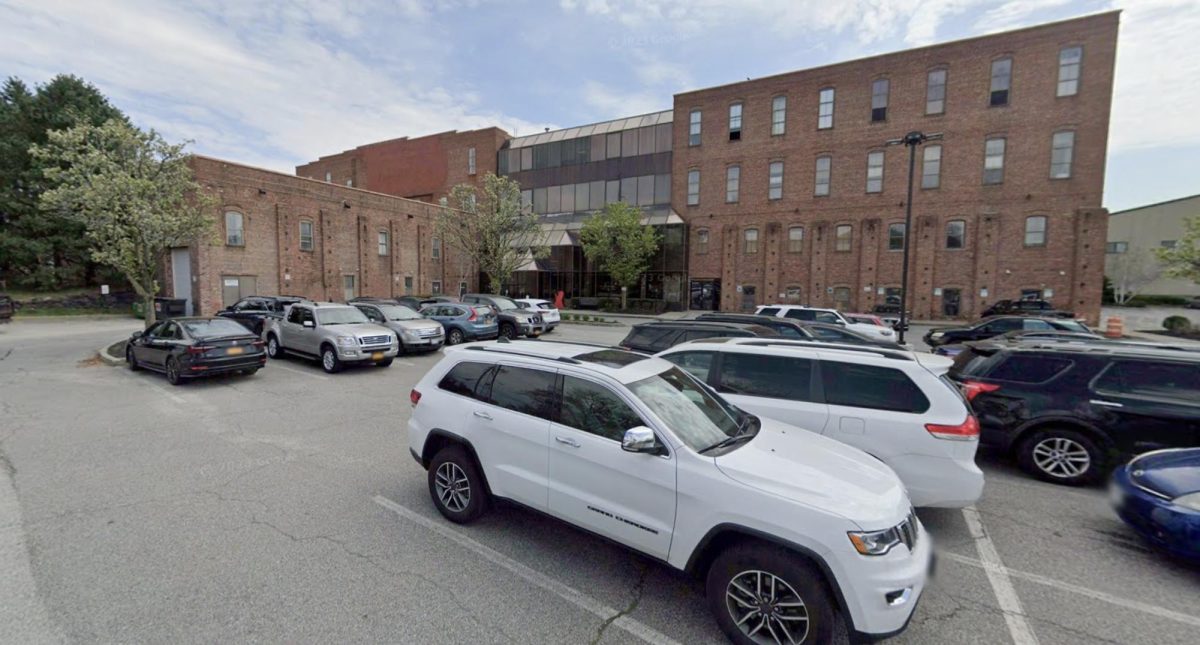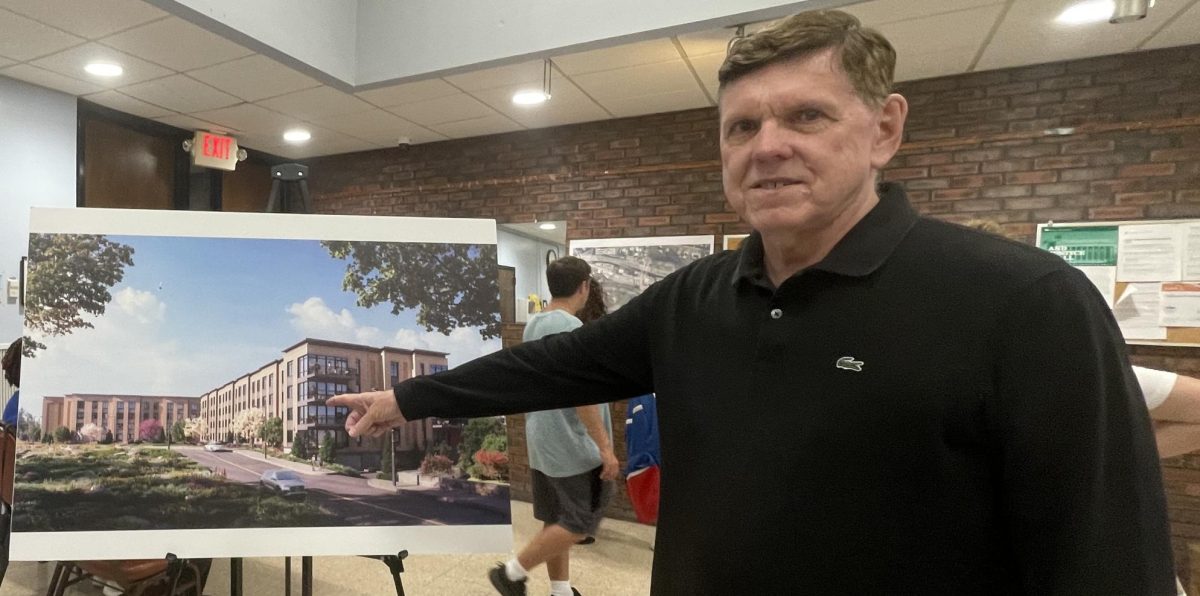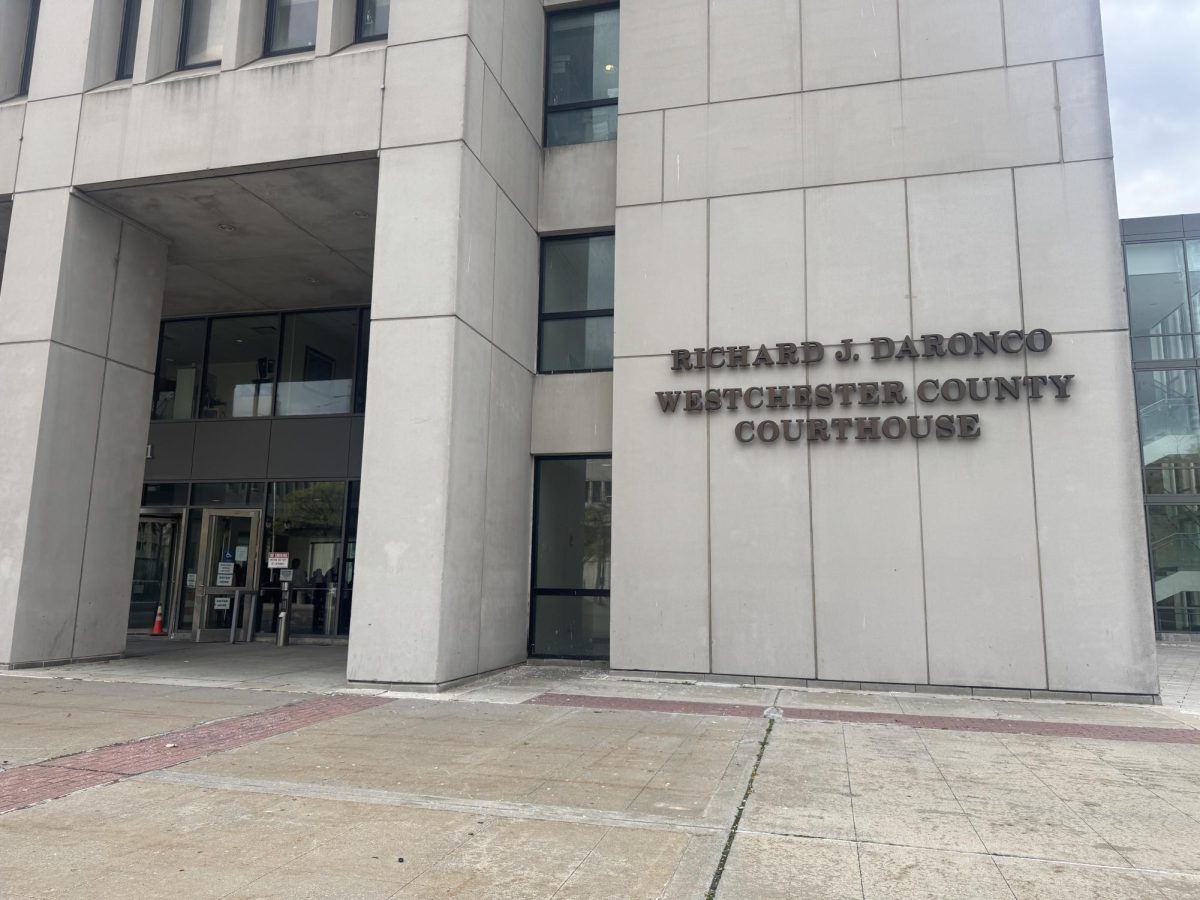Restaurants are the heart and soul (and stomach) of this city, so they should stay open until 4 a.m. That was the common sentiment among those who spoke at the Sept. 9 public hearing on the proposal to change restaurant closing time to 2 a.m. from the current 4 a.m. During the hearing, Peekskill’s Common Council heard from 10 individuals, with a majority speaking against the proposed 2 a.m. closing time.
In addition, three other public hearings (Section 8 2025 Annual Plan, Revisions to Section 8 Administrative Plan, Special Temporary Operating Permits), were held during the Sept. 9 meeting. The hearings, plus the handing out of special recognitions, and the passing of agenda items, culminated in a three hour long meeting. Deputy City Clerk Jeanette Moore stood in for City Clerk Cassandra Redd, who was absent from the Sept. 9 meeting.
Public Hearing: Restaurant Business Hours
In July, City Manager Matt Alexander proposed amending Chapter 213 of the city code to require restaurants to close from 2 – 6 a.m. (The city currently allows restaurants to be open until 4 a.m.) Alexander proposed this change in response to recent violent incidents, including a death by stabbing in June.
At the Sept. 9 meeting, Corporation Counsel Michael Hartman explained that the updated city code would require a a 2 a.m. closing time for all business that the city defines as “restaurants” located within a limited hours of operation district. The amendment states that restaurants can reopen their doors at 6 a.m.
(The city defines a restaurant as “any premises where food and beverages are commercially sold primarily for on-premises consumption by patrons seated at tables and served by wait staff”. This does not include fast-food establishments, delis, and diners, noted Hartman. The borders of the limited hours of operation district are listed here.)
“For me, I don’t think it’s fair. If you guys have a problem on Main Street or in other places, address those problems,” said Ruben Alvarez, owner of Ruben’s Mexican Cafe, located at 12 N. Division Street.

“If someone is not behaving in their own restaurant and someone is not doing their job in their restaurant, then send the police,” Alvarez added. “Don’t come to my side and just say ‘Let’s close Ruben’s for no reason’.” Alvarez’s establishment is open until 3 a.m. on Fridays and Saturdays.
Alvarez warned the council that if the proposed amendments were passed, late night restaurant patrons would start to go to other cities, lowering restaurant sales which would decrease the amount of taxes the city collects from businesses.
Joe Sparrow, the head of security for Ruben’s Mexican Cafe explained to the council that military personnel and correction officers are hired to mitigate security risks at Alvarez’s establishment. Sparrow added that if any Peekskill establishment needed security assistance, he and Alvarez would be willing to help.
Neftali Martinez, owner of The New Yorker Tavern on Washington Street, told council members that the parties responsible for the late night crime should be punished, not every restaurant in town.
“If I committed a crime, blame me. Don’t blame everyone,” said Martinez.
Robert Blatt, one of the partners of Copperhead Club on North Water Street, said it’s important to have spaces that people who work late hours, like artists, can enjoy.
“Something that I don’t want to see, both as a business owner and a patron of the city as well, is that we start to push those people away. If you’re on your way home and it’s late, there’s nowhere for you to go here,” said Blatt.

Blatt added that a long term effect of the proposed amendments will be people moving from Peekskill and the city losing its ‘color’, no longer having the same appeal as it does now.
Angel Urena, owner of El Sabor Ecuatoriano, also spoke against changing the code, although his establishment on Washington Street sells only food and not alcohol. Urena explained his sales will be impacted, since the proposed amendments will prevent restaurants from opening until 6 a.m. Urena’s establishment currently opens at 5 a.m., selling breakfast and lunch to Peekskill residents who leave for work before 6 a.m.
The only speaker in favor of changing the current code was John Sharp, owner of multiple restaurants in Peekskill. After the June stabbing, Sharp had asked the Common Council to require restaurants to stop serving alcohol after 2 a.m.
Sharp acknowledged that other business owners had made good points in the public hearing, but emphasized why he thinks the changing the current code would ultimately benefit restaurateurs.
“I want all these people to understand, the hours they’re fighting for [2 – 4 a.m.] are creating the problem that is hurting their business during dinner time,” said Sharp.
Sharp said, although he did not provide statistics, that sales in his restaurants are down because of, “the verbiage, and the atmosphere, and the perception of Peekskill.” He felt that although crime had decreased since he opened his first Peekskill restaurant 14 years ao, recently he has observed the situation worsening.

Sharp implored the council to support restaurateurs by providing additional police force downtown, noting that any change to city code would be meaningless if the police are not available to enforce the law and ensure the public’s safety. “If we do not have the police force here, we [restaurants] will die!” cried Sharp. “We are kind of dying right now.”
However, Sharp did not agree with the current proposed amendments that all restaurants would have to close between 2 and 6 a.m., whether or not they serve alcohol. He felt changes to the city code regarding restaurants should be about the hours they may serve alcohol to patrons.
Mayor Vivian McKenzie noted that the proposed amendments to restaurant hours were not solely about alcohol and crime, but also about noise and the general welfare of the community. She acknowledged the points made by all the restaurateurs, noting that while her establishment does not serve alcohol, she does understand how difficult it can be to run a restaurant. “I do understand the margins and the margins are thin.”
The mayor suggested continuing the dialogue between the city and restaurateurs, so the city can understand what measures restaurants take to ensure patrons do not become extremely inebriated (for example, what time do they stop serving food), how restaurants address noise, and whether restaurants are operating as an after hours dance club.
The council agreed with the mayor and restaurateurs that the topic requires more thought and discussion.
Council members moved to close the public hearing; the topic of amending restaurant business hours is expected to be raised at a future meeting, given restaurant owners’ issues with the current proposal and the council’s desire to improve the quality of life downtown.
Public Hearings: Section 8
Two public hearings for Section 8 were held at the Sept. 9 meeting to gather public input on Peekskill’s Section 8 2025 Annual Plan and revisions to Section 8 office’s administrative plan.
The City of Peekskill Section 8 program plans to revise sections of its administrative plan to reflect new National Standards for the Physical Inspection of Real Estate (NSPIRE) policies. Other changes include: changes to eligibility, admissions, re-examinations, the location of the Section 8 office, and the programs leasing jurisdiction.
The new office space of Peekskill’s Section 8 program will be located at 2B John Walsh Blvd. Director of Section 8 Jessica Ganus had told the council in May that the move resulted from an analysis conducted by a firm hired by the city to develop its Cost Allocation Plan for the Section 8 program. The analysis concluded that the city could not charge rent to the Section 8 office because the costs of the City Hall space had been fully depreciated.
Concurrently, the city was looking for additional space to store documents. The city and Section 8 agreed that the city should utilize the space currently occupied by Section 8 for storage and that the Section 8 office would rent space outside City Hall.
(Note, according to an email from City Manager Matt Alexander, currently Section 8 staff have approximately 5 appointments in City Hall each week. Staff will continue to meet with clients post re-location, at either City Hall or the Neighborhood Center. Further, Section 8 staff will have dedicated meeting, server, storage, and office space inside City Hall and the Neighborhood Center at all times for its use after they re-locate their workspaces to John Walsh Boulevard.
The rent for the new location of the Section 8 office is $2700 per month; Alexander noted that the city could have decided not to charge rent to the Section 8 program. Alexander’s email did not indicate the rent the city had been charging Section 8.)
During the public hearings, resident Tina Volz-Bongar asked how many people were taken off the waiting list for the city’s Section 8 program and whether domestic violence victims and disabled people were prioritized for housing.
Ganus responded that as of this year, the program has pulled off around 20 people from the waiting list. Individuals who are pulled off the list, are able to move anywhere within the program’s jurisdiction. She added that the program’s preferences are the disabled, elderly, individuals who work and or reside in Peekskill and Westchester County, and veterans.
Volz-Bongar also questioned where people who need Section 8 services will go now that the program’s office will be located at 2 John Walsh Blvd. Ganus responded that the office will still operate by appointment only, and they will make appointments at City Hall in the conference room or the council chambers when needed. If the space is unavailable, Ganus noted that the city will work with Community Hub Director Johnathan Zamora to schedule appointments at the Neighborhood Center.
Volz-Bongar and CEO of CHHOP Cynthia Knox, expressed their disapproval of Section 8’s move to John Walsh Blvd. Knox said the move could allow people to “fall through the cracks” and asked the council if they had considered moving a different department, like Corporation Counsel, outside of City Hall before Section 8.
In response, Mayor Vivian McKenzie stated that Section 8 is not a city run (funded) entity, whereas Corporation Counsel is a department that is directly linked to the city. Section 8 programs are funded by the U.S. Department of Housing and Urban Development.
Peekskill’s Section 8 2025 Annual Plan, which features the program’s mission, goals and strategies for achieving the mission and goals from the program’s five year plan, is available here.
No residents spoke during the Special Temporary Operating Permits public hearing for text amendment changes to city code Chapter 287 and 575 in regard to the regulation of entertainment venues.
City Manager Report
During his report to the council, City Manager Matt Alexander shared that the building department has doubled its overcrowding violations from last year, and there’s been a 33 percent increase in its nuisance violations.
“There are many other violation categories which have seen a reduction and one of the reasons for this is that lots of the properties that had been issued citations or violations last year, have been in compliance this year,” noted Alexander.
Alexander also praised Chief of Police Leo Dylewski and the Peekskill Police Department for their work during the mobile office hours of the Ecuadorian Consulate of New York held at the Central Firehouse on Sept. 7. That event featured the appearance of the President of Ecuador, Daniel Noboa, which required extra security.
Alexander informed council members that the police department developed a security plan with less than a week’s notice, resulting in a safe event.
Infrastructure Planning RFP
The Common Council unanimously passed a resolution on Sept. 9 authorizing the city manager to release a request for proposals (RFP) for project management support to implement infrastructure projects supported by the city’s $10 million Momentum Fund grant.
According to Director of Planning Carol Samol’s memo, the Momentum grant requires that the city invest an additional $10 million in infrastructure projects and see commensurate growth by 2027.
The RFP will describe project management support required for two phases of work: Phase 1 – develop infrastructure project sequencing and oversee cost estimates for each project; grant budgeting, contracting and reporting; liaise with housing developers. The RFP will also include an option for Phase 2 – capital planning and construction contract oversight, housing development tracking; grants management and reporting; and matching funds management.
The RFP will cap the expenses for Phase 1 work at $50,000. The City has requested $45,000 from the Peekskill Industrial Development Agency and the Peekskill Facilities Development Agency to support Phase 1 of this work. The city will contribute $5,000. City staff will return at a later date seeking authorization to begin Phase 2 and identify funding sources.
Fleischmann Pier Sewer System Extension Study
The council unanimously passed a resolution on Sept. 9 authorizing the city manager to execute a contract with Barton & Loguidice (B&L) for a sewer system extension study at Fleischmann Pier.
The city received a $50,000 Engineering Planning Grant from the NYS Environmental Facilities Corporation to study if Fleischmann pier can support larger boats coming in. The city issued an RFP in April and received responses from two firms, one being B&L.
According to a memo from the planning department, after interviewing both companies, the department determined that B&L had a greater overall level of understanding of the project due to their in-depth knowledge of the city’s existing sewer infrastructure.
Lease Agreement with Paramount Theater
The council unanimously passed a resolution on Sept. 9 authorizing the city manager to execute a new lease agreement with Paramount Hudson Valley Arts for use and operation of the Paramount Theater.
The city’s most recent lease agreement with the Paramount Hudson Valley Arts expired on July 29, 2024. The city and the Paramount have agreed to a new 5-year lease, with two 3-year renewal options.
According to City Manager Alexander’s memo, the monthly lease payment base will be $2,000 and will remain the same for the first three years of the lease. The base rent will increase annually starting on August 1, 2027 at a rate to be negotiated.
Special Recognitions – Sponsors and Partners of the Annual Back to School Giveaway
Mayor Vivian McKenzie and City Manager Matt Alexander presented the sponsors and partners of the Annual Back to School giveaway with special recognitions at the Sep. 9 council meeting.
“The backpack giveaway for back to school was phenomenal but could not be done without the partnership of these people who help and these organizations, along with our city staff,” said McKenzie. According to Mayor McKenzie, thirteen hundred backpacks were given away during the event back on August 22.

Recognized sponsors include: Alpha Kappa Alpha Sorority Incorporated Xi Chi Omega Chapter, Mount Olivet Baptist Church, Mount Lebanon Baptist Church, New York Presbyterian Hudson Valley Hospital, Peekskill City School District, State Senator Pete Harckham, Rotary Club of Peekskill, WIN Waste Innovations, and Assemblywoman Dana Levenberg.

Recognized partners include: Busy Bee Daycare, Hudson Valley Gateway Chamber of Commerce, Events to Remember, Homeless Remedies, Inc., Sigma Gamma Rho Sorority, Inc Theta Sigma Sigma Chapter, St. Peter’s Church, Fun Bunch Line Dancing, State Farm Kyle Rourke, Agent, Linda Allen, Zeta Amicae of Peekskill, First Hebrew Congregation, Zeta Phi Beta Sorority, Inc. Nu Psi Zeta Chapter, Grandpas United, Sun River Health, Tina Volz-Bongar, Jump for Joy Daycare, Willa Hine, Beyond these Walls Building Bridges, Family Resource Center – Elizabeth McCorvey, Mount Olivet Housing corporation, The Male family – In honor of “Dad & Danielle”, and Monica Spears in loving memory of Mollie A. Branciforte.























